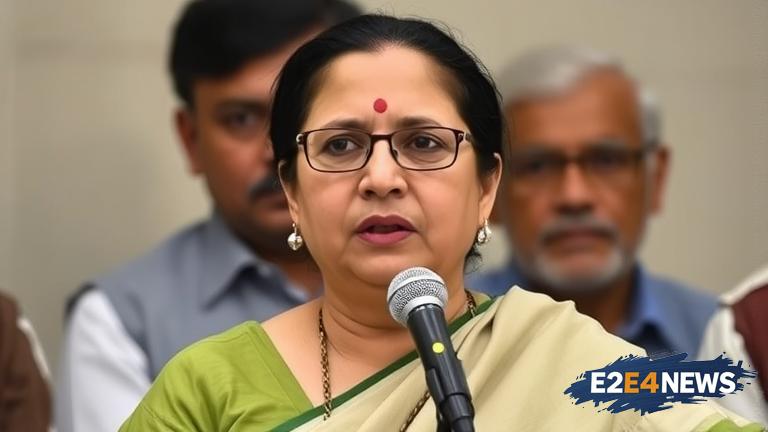The Delhi High Court has recently made a significant ruling, effectively blocking the disclosure of Union Minister Smriti Irani’s educational records. This decision comes on the heels of a long-standing controversy surrounding Prime Minister Narendra Modi’s degree, which has sparked intense debate and scrutiny over the authenticity of his educational qualifications. The court’s ruling is based on the premise that disclosing Irani’s educational records would constitute an invasion of her privacy and potentially disrupt her personal life. The petition seeking the disclosure of Irani’s records was filed by a private individual, who claimed that the minister had provided false information about her educational background. However, the court rejected this petition, stating that the disclosure of such information would not serve any public interest and would instead cause unnecessary harm to Irani’s personal and professional reputation. The court’s decision has been met with mixed reactions, with some hailing it as a victory for individual privacy and others criticizing it as an attempt to shield public figures from accountability. The controversy surrounding Modi’s degree has been ongoing for several years, with opposition parties and critics alleging that the prime minister’s educational qualifications are not genuine. The issue gained significant traction in 2016, when the Aam Aadmi Party (AAP) filed a complaint with the Delhi University, seeking an investigation into the authenticity of Modi’s degree. The university subsequently issued a statement, confirming that Modi had indeed graduated from the institution, but the controversy has continued to simmer. The Delhi High Court’s ruling in the Smriti Irani case is likely to have significant implications for the ongoing debate over the disclosure of public figures’ educational records. While the court’s decision prioritizes individual privacy, it also raises questions about the balance between transparency and accountability in public life. The issue is further complicated by the fact that public figures, including politicians and government officials, are often subject to intense scrutiny and criticism. In this context, the disclosure of their educational records can be seen as a means of ensuring accountability and transparency. However, the court’s ruling suggests that such disclosures must be carefully weighed against the potential risks to individual privacy and reputation. The case has also sparked a wider debate about the role of the judiciary in balancing competing interests and rights. While the court’s decision has been criticized by some as an overreach, others have hailed it as a necessary step to protect individual privacy and prevent the misuse of personal information. The controversy surrounding Smriti Irani’s educational records is not an isolated incident, but rather part of a larger trend of scrutiny and criticism faced by public figures in India. In recent years, several high-profile politicians and government officials have faced allegations of falsifying their educational qualifications or providing misleading information about their backgrounds. The issue has significant implications for the country’s democratic institutions and the public’s trust in their leaders. As the debate over transparency and accountability continues, the Delhi High Court’s ruling is likely to be seen as a significant milestone. The case highlights the need for a nuanced and balanced approach to the disclosure of public figures’ personal information, one that takes into account both the need for transparency and the risks to individual privacy. The ruling is also likely to have significant implications for the ongoing controversy surrounding PM Modi’s degree, as well as the broader debate over the role of the judiciary in protecting individual rights and balancing competing interests. In conclusion, the Delhi High Court’s decision to block the disclosure of Smriti Irani’s educational records is a complex and multifaceted issue, with significant implications for the balance between transparency and accountability in public life. While the ruling prioritizes individual privacy, it also raises important questions about the need for transparency and accountability in democratic institutions. As the debate continues, it is likely that the court’s decision will be seen as a significant milestone in the ongoing discussion over the role of the judiciary in protecting individual rights and balancing competing interests.
